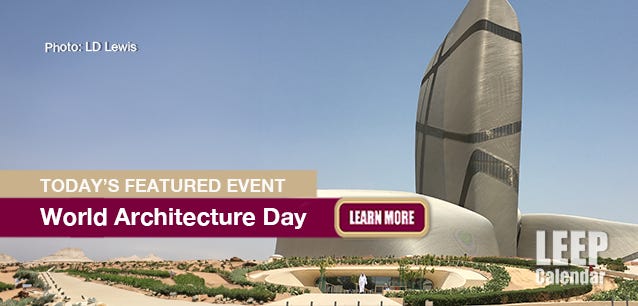 AD
AD

OOH LA LA, October
October is the busiest month for events, with 5% more happening than in May, the second most eventful month.
Sailing enthusiasts will be glued to the finals of this year's America Cup, which will wind up in the waters off Barcelona on October 27. The competition began on August 22, 2024.
Those of the Jewish faith will observe Yom Kippur on October 11 and 12.
October is a significant month for LGBTQ+ events and pride days, second only to June, as it marks Gay and Lesbian History Month.
In Canada, October is Women's History Month, with Thanksgiving on October 14. The Virgin Islands observe Hurricane Thanksgiving Day on October 21.
The United Kingdom dedicates October to Black History Month, while in the United States, it's a time to recognize Italian-American, Polish-American, German-American, Filipino-American and Muslim-American Heritage Months. Health awareness efforts this month focus on addiction and related diseases.
Of course, Halloween on October 31 increasingly influences other events in October worldwide.
Subscribed
Let's start with cocoa, courtesy of the Caribbean nations of Trinidad and Tobago.
Trinitario cocoa is one of the most sought-after chocolates by connoisseurs. Promptography LD Lewis.
WORLD COCOA AND CHOCOLATE DAY
Date: October 1, 2024
Location: Worldwide plus a Festival in Trinidad and Tobago
Champion: International Cocoa Organization and the Académie Française du Chocolat et de la Confiserie
World Cocoa and Chocolate Day, organized by the International Cocoa Organization and the Académie Française du Chocolat et de la Confiserie, celebrates the cultural and economic significance of cocoa, particularly in countries like Trinidad and Tobago, where cocoa plays a vital role in the agricultural sector and economy.
The event began in 2011 and highlights the island’s production of high-quality Trinitario cocoa, a globally sought-after variety. Local festivals feature chocolate tastings, workshops, and demonstrations, allowing participants to explore the rich flavors and artisanal chocolate-making traditions. The day also promotes sustainable farming practices and supports the livelihoods of cocoa farmers.
The Dove Music Awards honor the emotive genre of gospel music.
GMA DOVE GOSPEL MUSIC AWARDS
Date: October 1, 2024
Location: Nashville, Tennessee, United States
Champion: Gospel Music Association
Since 1969, the GMA Dove Awards has honored outstanding achievements and excellence in Christian Music.
The show celebrates musical diversity. Awards are presented to individuals representing modern Rock, Rap/Hip-Hop, Pop/Contemporary, Inspirational, Southern Gospel, urban, Bluegrass, Country, Worship, and more.
The Model T revolutionized industry and made cars affordable to most people worldwide. Promptography LD Lewis.
FORD MODEL T DAY
Date: October 1, [1908]
Location: Worldwide
Champion: Historical Anniversary
Model-T Day is an annual celebration honoring the Ford Model T, the car that revolutionized the automobile industry and transformed global transportation. Introduced by Henry Ford on October 1, 1908, the Model T became the first affordable vehicle for the average family, thanks to Ford's innovative assembly line production. The Model T, or "Tin Lizzie," democratized car ownership and symbolized progress and innovation.
Beyond making transportation accessible, the Model T's impact extended globally, contributing to the rise of car culture, the expansion of road networks, and changes in how people lived and worked. It also spurred growth in industries like oil, steel, and rubber and revolutionized manufacturing worldwide. Model-T Day celebrates the car's enduring legacy and Henry Ford's role in shaping modern society.
Dussehra is a Hindu celebration of good conquering evil. Promptography LD Lewis.
DUSSEHRA
Date: October 12, 2024
Location: Worldwide, India
Champion: Hindu Religious Observance
Dussehra, also known as Vijayadashami, is a prominent Hindu festival that celebrates the triumph of good over evil, commemorating Lord Rama's defeat of the demon king Ravana, as described in the Ramayana. It also honors Goddess Durga's victory over the buffalo demon Mahishasura, symbolizing the restoration of righteousness. This festival, which is observed across India, remains a potent reminder that no matter how strong evil may appear, goodness and virtue will always prevail. Dussehra typically concludes the nine-day Navaratri festival, which honors the divine feminine energy of Goddess Durga.
Navaratri, a nine-night festival dedicated to the worship of Goddess Durga, leads up to Dussehra and celebrates different aspects of the goddess, reflecting the victory of good over evil. The celebrations vary across regions in India. In the north, Ramlila performances reenact Rama's victory, culminating in the burning of Ravana effigies, while in the east, Durga Puja ceremonies feature the immersion of Durga idols in rivers. Customs during Dussehra include processions, fairs, and the worship of tools and weapons in a practice called "Ayudha Puja," fostering unity, reflection, and the celebration of virtue and perseverance.
The flags of Germany and East Germany became one on October 3, 1990.
UNITY DAY
Date: October 3, [1990]
Location: Germany
Champion: Historical Anniversary. National Public Holiday.
Unity Day, celebrated annually on October 3rd in Germany, marks the reunification of East and West Germany in 1990, following the fall of the Berlin Wall in 1989. This historic event ended nearly four decades of division between the two German states and symbolized the victory of democracy. Unity Day not only commemorates the physical reunification of the country but also serves as a reflection on the values of freedom and unity that shaped the nation's modern history.
Celebrations on Unity Day include official ceremonies, public gatherings, concerts, and fireworks across Germany, with the primary national celebration rotating between cities. The day also prompts reflection on the lasting legacy of division between East and West Germany, such as economic disparities and social differences, which still influence the nation's political landscape. Unity Day underscores the importance of overcoming historical divides to forge a united, inclusive society while shaping Germany's ongoing role in European integration and global diplomacy.
Leif Ericsson of Iceland is the first European to discover and set foot on North America in 1001 CE. Promptography LD Lewis.
LEIF ERICSSON DAY
Date: October 9, [1001 CE]
Location: Worldwide
Champion: Historical Anniversary
Leif Ericsson, also known as Leif the Lucky, was a Norse explorer credited with being the first European to reach North American shores, nearly 500 years before Christopher Columbus. Born around 970 AD in Iceland, Leif was the son of Erik the Red, the founder of Norse settlements in Greenland. His most notable voyage took place around 1001 CE when he sailed from Greenland and discovered a land he called Vinland, located in what is now Newfoundland, Canada. This journey, detailed in the Icelandic sagas, marked a key moment in the Viking exploration of the North Atlantic.
Leif's discovery of Vinland predates other European ventures into the New World and highlights the adventurous spirit of the Viking age. While the Vikings did not establish lasting settlements in North America, their temporary presence and interactions with Indigenous peoples influenced later European exploration. Today, Leif's achievements are commemorated on October 9th as Leif Ericsson Day, honoring his role in expanding the boundaries of known lands and leaving a legacy as one of history's most pioneering explorers.
Alex Odeh was one of several Arab-American civil rights workers and diplomats targeted and/or assassinated by the JDL on American soil between the 1970s and early 2000s.
ALEX ODEH DAY
Date: October 11, [1985]
Location: United States
Champion: Historical Anniversary. American-Arab Anti-Discrimination Committee
Alex Odeh was an American human rights activist of Palestinian origin and regional director of the American-Arab Anti-Discrimination Committee (ADC). He was assassinated in a bombing of the ADC offices in Santa Ana, California, on October 11, 1985. The FBI identified the Jewish Defense League (JDL) as the prime suspect, linking the bombing to a series of attacks by the group. Odeh's assassination is believed to be retaliation for his public defense of Palestinians after the 1985 hijacking of the Achille Lauro, during which he refuted Israeli accusations that the Palestinian Liberation Organization (PLO) was responsible.
In 1992, Odeh was vindicated when former Israeli intelligence officer Ari Ben-Menashe revealed in his book "Profits of War" that the PLO had no involvement in the hijacking. Ben-Menashe disclosed that the event was a black flag operation by Israeli intelligence aimed at discrediting the PLO, as international support for the Palestinian cause was growing at the time. The hijacking, which resulted in the killing of American Leon Klinghoffer, had been falsely attributed to Palestinians, but Odeh's efforts to clear their name cost him his life.
Several individuals linked to the JDL, including Robert and Rochelle Manning, Keith Fuchs, and Andy Green, are suspected of carrying out the bombing. Mr. Mannings was extradited from Israel and sentenced for unrelated terrorist acts in 1993. He was released in 2023. His wife died in an Israeli prison, also on unrelated terrorist charges. Fuchs and Green remain free in Israel and joined the West Bank settler movement despite solid evidence linking them to Odeh's murder. Green, now known as Baruch Ben Yosef, is a leading figure in the blockades preventing humanitarian aid from entering Gaza (a war crime) during the current genocide.
In honor of Odeh's legacy, the ADC continues to seek justice, establishing Alex Odeh Day as a reminder of his contributions to human rights and the ongoing fight for accountability.
The DAR Museum is directly adjacent to The Eclipse in Washington DC. Photo DAR
DAUGHTERS OF THE AMERICAN REVOLUTION (DAR) DAY OF SERVICE
Date: October 11, [1890]
Location: United States
Champion: Daughters of the American Revolution
Founded in 1890, the Daughters of the American Revolution (DAR) is a civic organization of female descendants of American fighters from the Revolutionary War. Each year since 2014, on or near the anniversary of their founding on October 11, 1890, members devote a day to serving the community during the DAR Day of Service. Activities include:
1) Collecting and donating goods and toiletries for local food pantries and women’s shelters;
2) Writing letters and compiling care packages for deployed troops;
3) Cleaning up local historic homes and restoring headstones in cemeteries;
4) Packing backpacks with meals and goods for young students in need; and
5) Picking up trash and debris along local waterways and parks.
Organizations interested in participating in the DAR Day of Service should contact their local chapter.
Full disclosure: I am a member of DAR.
Impressionist idea of the world's flags.
NATIONAL HOLIDAYS AROUND THE WORLD
Independence Day
-
Azerbaijan (October 18, 1991)
-
Fiji (October 9, 1970)
-
Cyprus (October 1, 1960)
-
Czech Republic (October 28, 1918)
-
Guinea (October 2, 1958)
-
Equatorial Guinea (October 12, 1968)
-
Iraq (October 3, 1932)
-
Lesotho (October 1, 1966)
-
Nigeria (October 1, 1960/1963)
-
Turkmenistan (October 27, 1991)
-
Uganda (October 9, 1962)
-
Saint Vincent and the Grenadines (October 27, 1979)
-
Zambia (October 23, 1964)
National Day
-
Austria (October 26, 1955)
-
China (October 1, 1949)
-
Tuvalu (October 1, 1978)
Republic Day
-
Hungary (October 23, 1956/1989)
-
Portugal (October 5, 1910)
-
Türkiye (October 29, 1923)
MAJOR SPORTING EVENTS IN OCTOBER 2024
Graphic representation of sports.
October includes several major international sporting events.
-
America Cup (Sailing): August 22 - October 27—Spain
-
Chicago Marathon (Running): October 13—United States
-
Grand Final (Rugby): October 6—Australia
-
Grand Prix (Auto Racing): October 3-5—Singapore
-
National Wife Carrying Championships (Specialty): October 12—United States
-
Women's ICC World T20 (Cricket): October 3-20—United Arab Emirates
-
World Series (Baseball): October 25 - November 2—United States
-
World Track Championships (Cycling): October 16-20—Denmark
FEATURED DEEP DIVE
iThra in Dhahran, Saudi Arabia, is an example of sustainable architecture. Photo LD Lewis.
WORLD ARCHITECTURE DAY
Date: October 6, 2024
Location: Worldwide
Champion: International Union of Architects
World Architecture Day, observed annually on the first Monday of October, was established by the International Union of Architects (UIA) in 1985 to celebrate architecture's vital role in shaping communities, cultures, and the built environment. The day aligns with the United Nation's World Habitat Day, underscoring the connection between architecture and sustainable urban development. The purpose of World Architecture Day is to highlight architecture's social, cultural, and environmental impact, promoting awareness of its contributions to humanity.
The celebration features global events such as exhibitions, conferences, and architectural tours, where architects, students, and the general public come together to reflect on the profession's challenges and achievements. Architects often present innovative designs on sustainability, accessibility, and urban planning. Many countries also host lectures and workshops, fostering discussions on architecture's future role in addressing climate change and urbanization.
Architecture has a long and rich history, evolving from ancient structures like the Egyptian pyramids and Greek temples to modern skyscrapers and eco-friendly buildings. Key architectural movements include Classical architecture, Gothic, Renaissance, Baroque, Modernism, and Postmodernism, each influencing the aesthetics and functionality of buildings across different eras. These movements have shaped physical spaces and cultural identities, symbolizing technological advancements and societal values.
World Architecture Day emphasizes the critical importance of architecture in creating spaces that improve quality of life and reflect human ingenuity. It is a platform for architects and urban planners to engage with communities and envision more sustainable and inclusive futures. Participants include architects, designers, students, and professionals from the construction industry, all come together to celebrate architecture's profound influence on human civilization.
IMPACTFUL ARCHITECTURAL STYLES THROUGHOUT HISTORY
Throughout history, several architectural movements have left a lasting impact on the design and construction of buildings, each reflecting the cultural, technological, and artistic values of their time. Here are some of the most influential architectural movements:
1) Classical Architecture (6th century BCE - 4th century CE)
Classical architecture in ancient Greece and Rome emphasizes symmetry, proportion, and using columns. Notable examples include the Parthenon in Athens and the Roman Colosseum. This movement influenced many later styles, including the Renaissance and Neoclassical movements.
2) Gothic Architecture (12th - 16th centuries)
Pointed arches, ribbed vaults, flying buttresses, and large stained glass windows characterize Gothic architecture. It was prominent in European cathedrals, with examples like Notre-Dame de Paris and Chartres Cathedral, aiming to inspire awe and elevate spiritual experiences.
3) Renaissance Architecture (14th - 17th centuries)
Originating in Italy, Renaissance architecture marked a revival of classical ideals of symmetry, proportion, and geometry. Key architects like Filippo Brunelleschi and Michelangelo introduced innovations in perspective and dome construction, which is evident in works like Florence Cathedral and St. Peter's Basilica.
4) Baroque Architecture (17th - 18th centuries)
Baroque architecture is known for its grandeur, ornate details, and dramatic use of light and shadow. It sought to evoke emotion and power, often commissioned by the Catholic Church during the Counter-Reformation. Notable examples include the Palace of Versailles in France and St. Paul's Cathedral in London.
5) Neoclassical Architecture (18th - 19th centuries)
Neoclassical architecture drew directly from ideals of ancient Greece and Rome, promoting simplicity, symmetry, and grandeur. This style is often found in public buildings and monuments, like the US Capitol and the British Museum.
6) Art Nouveau (Late 19th - Early 20th centuries)
Art Nouveau emphasized organic forms, flowing lines, and intricate details inspired by nature. Architects like Antoni Gaudí, whose designs include the famous Sagrada Família of Barcelona, promoted this concept.
7) Modernism (Early 20th century - Mid-20th century)
Modernist architecture sought to break away from historical styles, focusing on functionality, simplicity, and new materials like steel, glass, and concrete. Key figures include Le Corbusier, Ludwig Mies van der Rohe, and Frank Lloyd Wright. Iconic buildings include the Villa Savoye and the Bauhaus.
8) Postmodernism (Late 20th century)
Postmodern architecture reacted against modernism's austerity by reintroducing ornamentation, eclecticism, and playful design elements. Architects like Michael Graves and Philip Johnson explored bold colors, historical references, and unconventional forms with famous works like the Portland and AT&T buildings.
9) Sustainable Architecture (21st century)
The focus of sustainable architecture is on creating environmentally friendly designs that reduce the impact on the environment. Buildings in this movement prioritize energy efficiency, renewable materials, and green technologies. The Edge in Amsterdam, iThra in Dhahran, and Bosco Verticale in Milan are prime examples.
World Architecture Day celebrates each of these movements, their influence on the aesthetics of buildings and how people live, work, and interact with their environments. Each shapes cultural identities and the urban landscapes we cherish worldwide.
October is also World Architecture Month.
Full disclosure: I worked at iThra between 2014 and 2017.
____________________
The next issue will cover events in November 2024. Thank you for the gift of your time. Please support my work by sharing, commenting and subscribing. We have almost 400 subscribers on LinkedIn. Help me hit that number and join us! Until the next issue, enjoy!
Subscribed
____________________
About the cover photo: Beirut is this month's cover photo, which I chose two months ago, before current events brought it to the fore. I took it during the Eid al-Fitr holiday as I was walking on the corniche with thousands of others following a fabulous dinner on my first of many visits to the city. I was amazed at how long the corniche is (at least 10-20 kilometers) and how fitness and evening walks are a big part of the city's heartbeat.
My heart, thoughts and advocacy for justice remain with my many friends and acquaintances living through this man-made hell they should not be experiencing.
Last updated: Oct 4th 2024












/footer-logo.svg)
